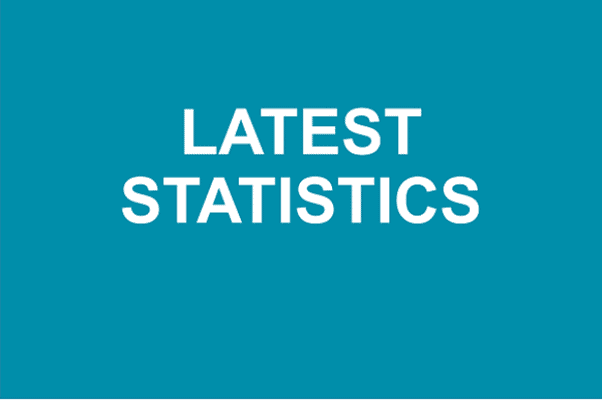The Department of Health has today published the next in the series of weekly results from its COVID-19 Infection Survey (CIS).
The findings set out in this report relate to modelled positivity estimates for Northern Ireland for the week up to the 12 June 2021. The aims of the CIS are to estimate how many people have the infection and the number of new cases that occur over a given time as well as estimating how many people have developed antibodies to COVID-19.
The survey over time will help track the extent of infection and transmission of COVID-19 among people in the community population (those in private residences).
Key Findings
Due to the relatively small number of tests and positive swab results within our sample, credible intervals are wide and therefore results should be interpreted with caution.
- During the most recent week of the study (6 June – 12 June), it is estimated that 3,000 people in Northern Ireland had COVID-19 (95% credible interval: 1,100 to 5,900).
- This equates to 0.16% of the population (95% credible interval: 0.06% to 0.32%) or around 1 in 610 people (95% credible interval 1 in 1,640 to 1 in 310).
- Modelling suggests the trend in the percentage of people testing positive remains uncertain in the most recent week in Northern Ireland however infection rates remain low compared with earlier months in the year.
- In the latest six-week period, there were 15,537 swab tests taken in total from 10,799 participants. Of these, 16 participants tested positive from 15 different households.
- In the latest two-week period, of the 4,987 participants in the study, 7 tested positive from 6 households.
- Due to lower positivity rates, incidence rates have not been updated. The methods and survey design are regularly reviewed as part of the ongoing quality assurance process. The incidence method uses several weeks’ data to provide the latest estimate of new infections. Due to lower numbers of people testing positive over the last several weeks compared with earlier in the year, the estimates of incidence are being reviewed (last published 7 May 2021(external link opens in a new window / tab)). This review ensures that the estimates provided continue to be of high quality.
New variant analysis
A new variant of the coronavirus (COVID-19) was identified in the UK in mid-November 2020. The Alpha variant (B.1.1.7, previously known as the UK variant) of COVID-19 has changes in one of the three genes which coronavirus swab tests detect, known as the S-gene. This means in cases compatible with the Alpha variant, the S-gene is no longer detected by the current test. While there are other reasons why a positive swab test may not detect the S-gene, absence of the S-gene has become a reliable indicator of the Alpha variant in COVID-19.
Other variants, including B.1.525 (Eta), also have this same pattern of gene positivity as B.1.1.7 (Alpha). At present these are rare in the UK (external link opens in a new window / tab) so this group will continue to be described as compatible with the Alpha variant, but this will continue to be reviewed.
In contrast other variants of concern including both B.1.617.2 (Delta) and B.1.351 (Beta) are positive on all three genes, with the pattern ORF1ab+S+N. Based on recent information from genomic sequencing and Test and Trace, it is likely that most ORF1ab+S+N cases will be the Delta variant. Therefore, if there is an increase in the prevalence of any of these strains, this will show up in the analysis as an increase in cases “Compatible with the Delta variant”. The main variant analysis can therefore differentiate between these two groups of variants (ORF1ab+N positive or ORF1ab+S+N positive), but cannot differentiate between variants that have the same gene pattern for the three genes that COVID-19 swab tests detect.
For cases compatible with the Alpha variant, cases compatible with the Delta variant and cases where the virus is too low to be identifiable, the trend remains uncertain in the most recent week in Northern Ireland.
It should be noted that there is considerable uncertainty around these estimates due to the low number of positive results in Northern Ireland. Additionally, there are uncertainties given that not all cases that are positive on the ORF1ab and N-gene will be the Alpha variant, and not all cases that are positive on all three of the ORF1ab, N-gene and S-gene will be the Delta variant.



